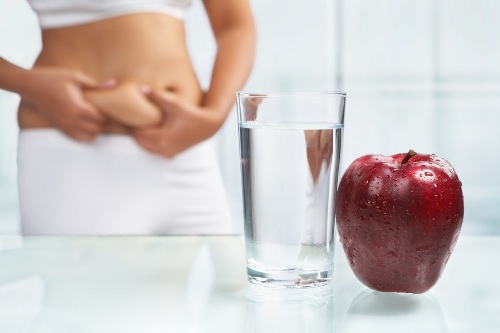
Common Dieting Myths
Dieting is not eating a lot to bulk up or eating less to become thin. Dieting is the consumption of food to get the required amount of calories with carbs, proteins, lipids and other nutrients in ideal proportions. If you want to become thin, do not just eat less. Plan a diet that ensures that you get the carbs, fats and proteins in the correct proportions. The total amount of calories should be decided by your weight targets. There are many myths about dieting. You need to identify what’s good and what’s not in order to maintain a proper diet and avoid the serious consequences that may come with following faulty eating habits.
- Important notification about information and brand names used in this slideshow!
- Photo courtesy of New Media Ba by Picasa : picasaweb.google.com/104919940046622069790/Zene#5586496263827854994
- Nutritional Medicine by Alan R Gaby

Chewing Low-Calorie Foods
Myth: Not chewing food properly reduces calorie intake. Food digestion starts with chewing, and its only purpose is to break the food into smaller pieces so the digestive enzymes in the stomach and intestines can act quickly. This process increases the net surface area of the food items that we ingest and it increases the RATE of digestion by allowing more enzymes to bind onto the food. It has no effect on the calorie intake. All the food ingested is digested in the gut except special compounds such as cellulose which cannot be digested by the human gut. Chewing and swallowing are different in medicine as various drugs are altered and removed from the system by the liver. For example glyceryltrinitrate (GTN) tablets are kept in the mouth where they are absorbed quickly and directly into the bloodstream. Swallowing a GTN tablet will cause the active compound to be removed by the liver and it will actually stop GTN action effectively.
- Important notification about information and brand names used in this slideshow!
- Photo courtesy of janice tattson by Picasa : picasaweb.google.com/lh/view?q=chewing+celery&uname=109008901828086469253&psc=G&filter=1#5743042001511861202
- Nutritional Medicine by Alan R Gaby

Coffee And Metabolism
Currently available studies show conflicting evidence on a beneficial link between coffee and metabolism. Coffee consumption is known to increase noradrenalin and adrenalin levels in the blood. This can result in a short term elevation of blood sugar, release of fatty acids from fat tissue, and an increased heart rate and blood pressure. It prepares you for fight, fright, and flight. High coffee consumption for four weeks has been shown to actually reduce the body’s sensitivity to insulin (insulin controls blood sugar level and when insulin sensitivity is low sugar control goes haywire). Despite the fact that studies have shown that consuming coffee can increase endurance and exercise performance, it is premature to advocate coffee/caffeine as a method to boost metabolism
- Important notification about information and brand names used in this slideshow!
- Photo courtesy of Renato Campana by Flickr : www.flickr.com/photos/asfuck/38447043/
- Nutritional Medicine by Alan R Gaby
- http://care.diabetesjournals.org/content/27/12/2990.full
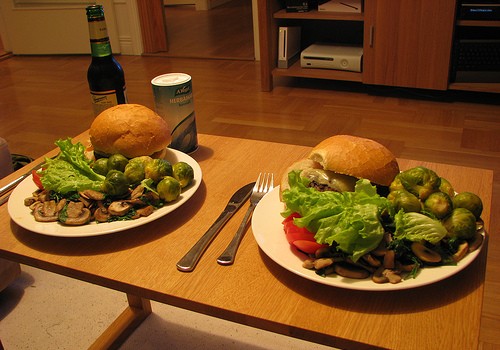
Eating After 8 PM
Eating is the way we get energy. Eating increases the calorie intake. The actual time at which we consume food is irrelevant as far as weight gain goes. The myth has come into being because we see that people who snack late at night tend to be overweight. We eat three meals a day, and then the late night snack becomes an extra meal. Extra energy is stored as fat and obesity is the result. The same thing happens if you eat extra meals during the day time. The 8 pm or “late night” phrase is irrelevant. The individual's activity level is what matters. A manual laborer will need more calories than a clerk. If the clerk eats the same amount as the laborer the clerk will get fat.
- Important notification about information and brand names used in this slideshow!
- Photo courtesy of Peter Hellberg by Flickr : www.flickr.com/photos/peterhellberg/1908487131/
- Nutritional Medicine by Alan R Gaby
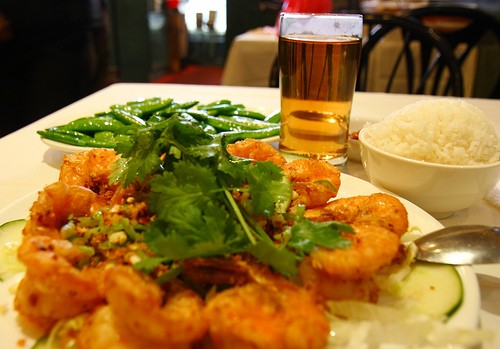
Eating Carbs, Fat, And Protein Separately
The ideal composition of a meal for a healthy adult is 50 percent carbohydrates, 30 percent proteins and 20 percent lipids. This general composition needs to be maintained regardless of your individual target calorie amount. There are points regarding absorption and transport of food along the digestive system that have minor effects on digestion but these are not so important to the healthy individual aiming for a balanced diet. The digestive system is a complex network of enzymes and other factors which can handle a vast variety of foods. Eating proteins, carbs and lipids separately does not have a significant effect on caloric intake.
- Important notification about information and brand names used in this slideshow!
- Photo courtesy of Paul Stein by Flickr : www.flickr.com/photos/kapkap/4207007460/
- Nutritional Medicine by Alan R Gaby
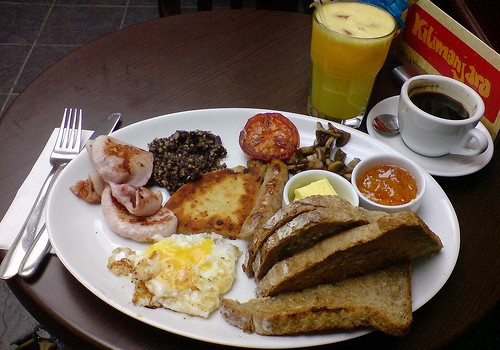
Breakfast
Breakfast is the first meal of the day unless you had a very late night snack (actually a very early morning snack).Breakfast is as important as lunch and dinner and the daily intake of calories should be equally distributed among the three main meals of the day. There is no scientific evidence to support the idea that skipping or having breakfast has any effect on weight gain. Some suggest that skipping breakfast will make you overeat later but a study conducted in children suggested that they did not overeat after skipping breakfast because a large lunch also meant a small dinner. Natural hunger is a good clue for many, but is tricky for obese people and diabetics who tend to feel hungrier (due to leptin formed in fat tissue) than healthy individuals.
- Important notification about information and brand names used in this slideshow!
- Photo courtesy of Mark by Flickr : www.flickr.com/photos/mhl20/3449326505/
- Nutritional Medicine by Alan R Gaby
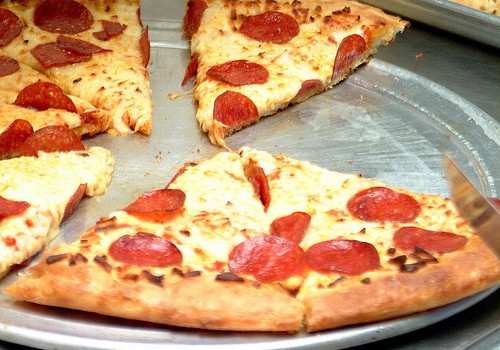
Cutting Down Calories By Eliminating Pizza
More than 90 percent of Americans eat pizza. More than half of the total sales of pizza are in US alone. Many children prefer pizza to other food products. A regular slice of pizza contains around 800 calories and about half of it is from lipids. Therefore it is better to avoid pizza altogether. If you are not going to do that, go for the thin crust, fat free cheese, and a salad side dish (care need to be taken with the salad dressings because they carry a lot of calories) to stop yourself from eating a lot of pizza, and more vegetables as toppings are better than nothing.
- Important notification about information and brand names used in this slideshow!
- Photo courtesy of rob_rob2001 by Flickr : www.flickr.com/photos/59247791@N08/5505415842/
- Nutritional Medicine by Alan R Gaby
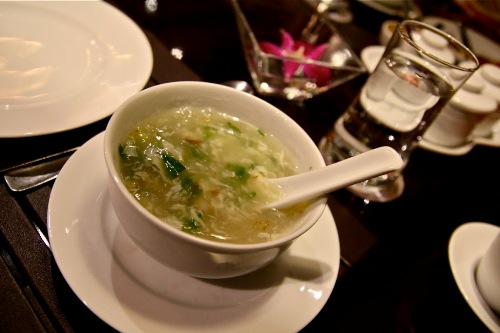
Cabbage Soup
The cabbage soup diet consists mainly of cabbage soup, with potatoes, fruits, vegetables, small amounts of milk and beef as add ons. The cabbage soup diet provides a significantly lower amount of daily calories than is deemed safe. It has basically no proteins and is high in sodium content because salt can be added to make it palatable.The only redeeming factor is that you can have as much as cabbage soup as you want. Because of its taste and the very low amount of calories many people feel unable to cope with the diet, and some complain of giddiness, nausea and vomiting. It is important to understand that, while you may lose weight on this diet, it will be nearly all water and very little fat.
- Important notification about information and brand names used in this slideshow!
- Photo courtesy of Hasin Hayder by Picasa : picasaweb.google.com/lh/view?q=Cabbage+soup&uname=109008901828086469253&psc=G&filter=1#5662635838483972274
- Nutritional Medicine by Alan R Gaby

Grapefruit For 'Flushing Fat'
Grapefruit was first bred in Barbados. In 100g of grapefruit you will find, 11g of carbohydrate (44 calories), 0.1g of fats (0.4 calories) and 0.8g of proteins (3.2 calories). It is high in Potassium (K), Magnesium (Mg), vitamin C (ascorbic acid), and vitamin A (retinoic acid). Grapefruits protect against cell damage due to their high antioxidant content. Lycopene and N-argenine are the main antioxidants in grapefruit. It also contains pectin, a dietary fiber which reduces glucose absorption in the gut and provides bulk to stools and reduce constipation. Due to its low calorie content, it is a good dietary choice but there is no scientific evidence to suggest that it helps to increases fat metabolism.
- Important notification about information and brand names used in this slideshow!
- Photo courtesy of WFIU Public Radio by Flickr : www.flickr.com/photos/wfiupublicradio/5410155531/
- Nutritional Medicine by Alan R Gaby

Exercising On An Empty Stomach
The body uses different fuels to provide energy for activities. These fuels change depending on the intensity and duration of the workout and how fit you are. At rest, a third of the total energy comes from glucose or glycogen and two thirds of energy comes from fats. When an average fit person starts exercising, carbohydrates are utilized as the primary energy source during the first few minutes. Then half of the energy comes from carbohydrates while the rest comes from fats. Only two percent of the total energy expenditure during aerobic workouts is provided by proteins. Before breakfast you are fasting and low on carbohydrates. The energy that is immediately available is less and rapid fatigue will result. Fat burning will occur during exercise but the total energy expenditure and duration of the workout will be low because you are unable to maintain the intensity. In a diabetic individual exercising while fasting is an easy way to get hypoglycemia.
- Important notification about information and brand names used in this slideshow!
- Photo courtesy of SlimToneNow by Picasa : picasaweb.google.com/lh/view?q=exercise+eating&uname=104919940046622069790&psc=G&cuname=104919940046622069790&filter=1#5883321241127053970
- Nutritional Medicine by Alan R Gaby


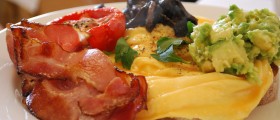
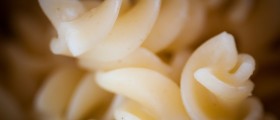
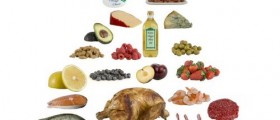
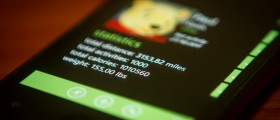
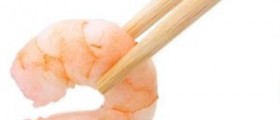
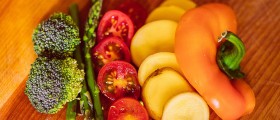
_f_280x120.jpg)
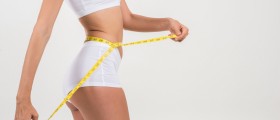

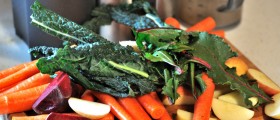



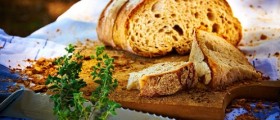
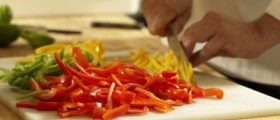
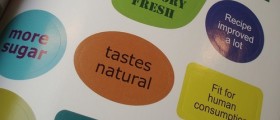
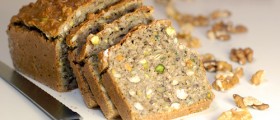
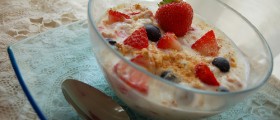
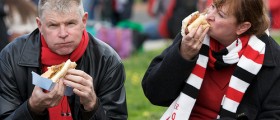
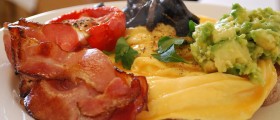
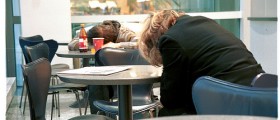
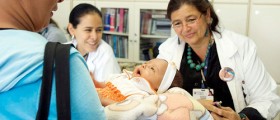



Your thoughts on this
Loading...